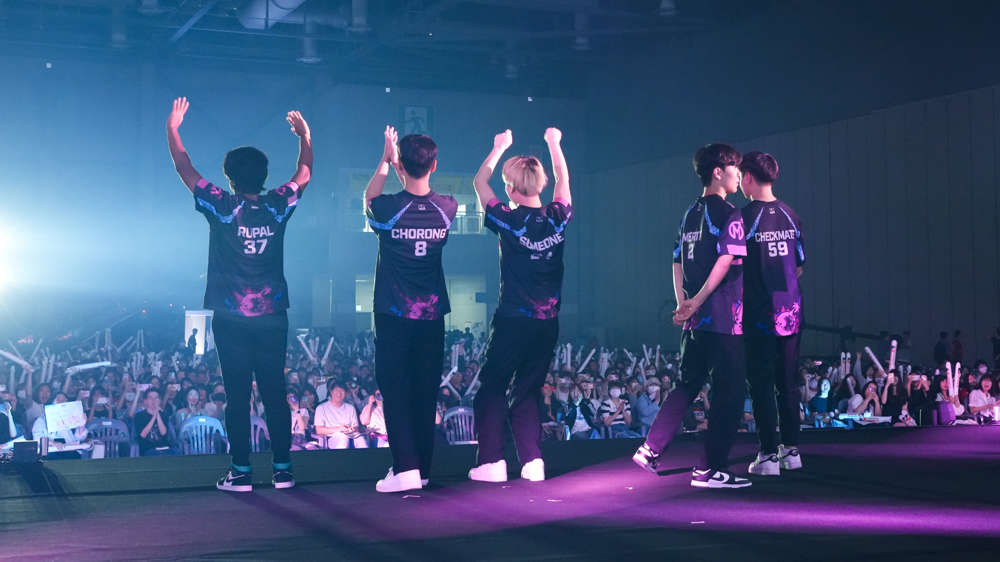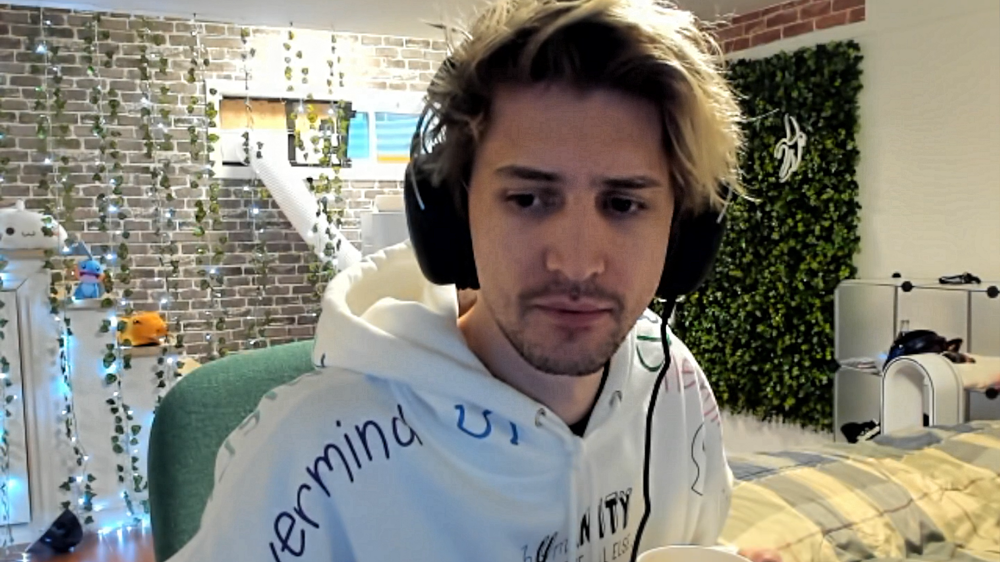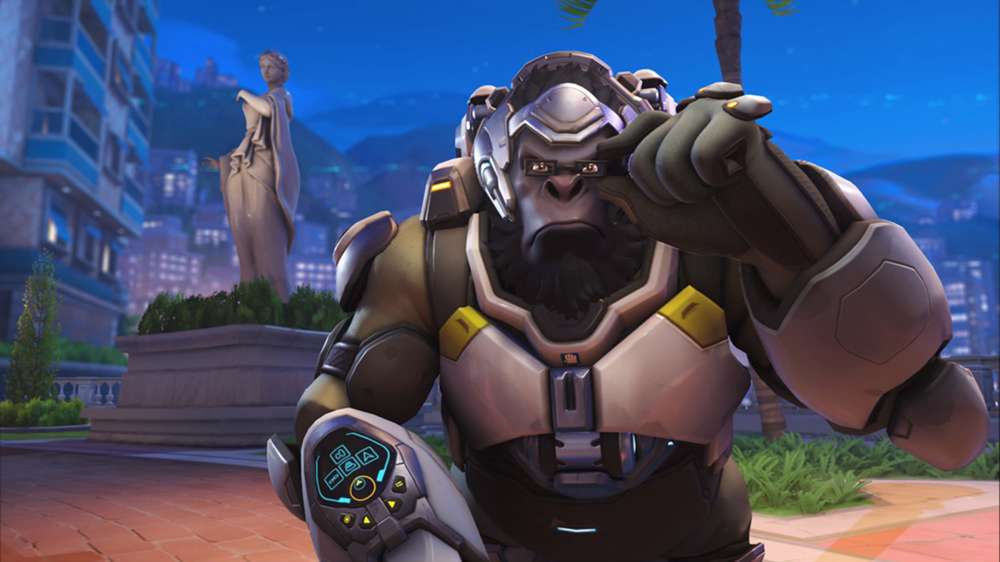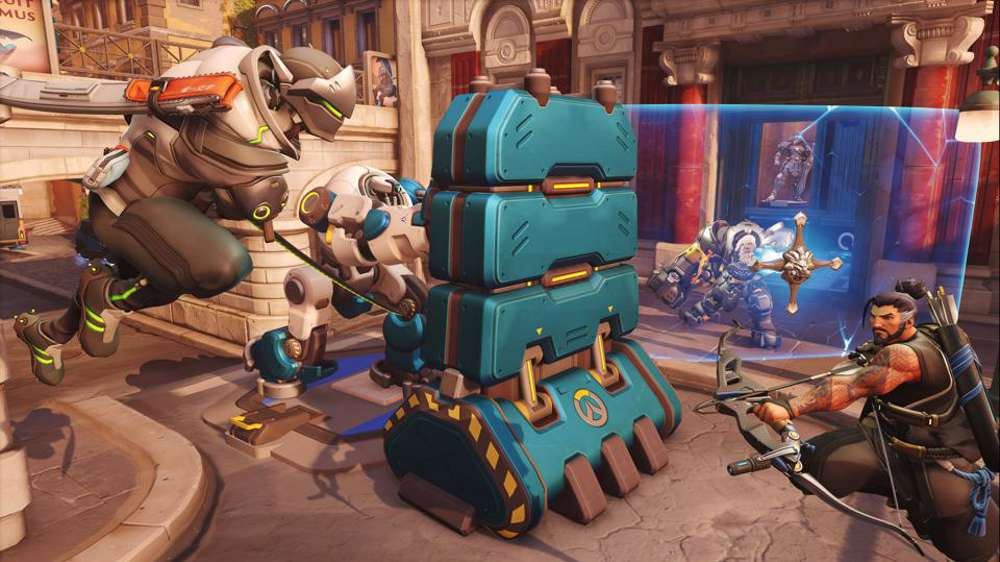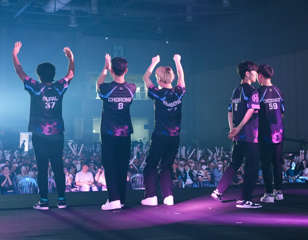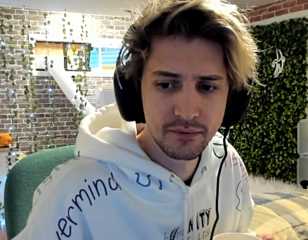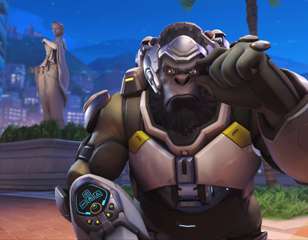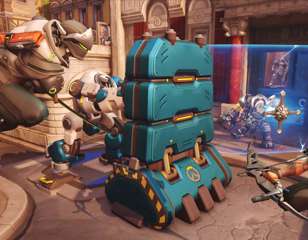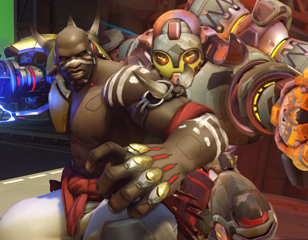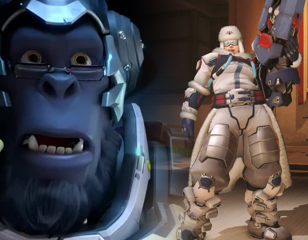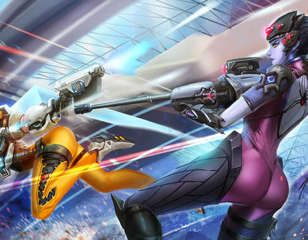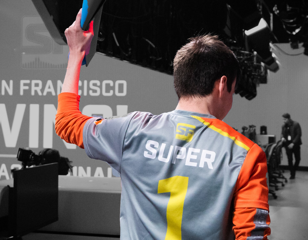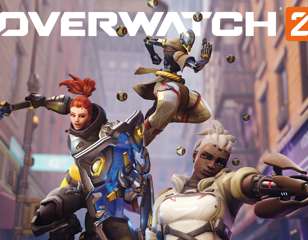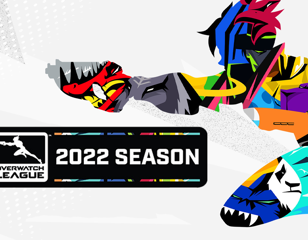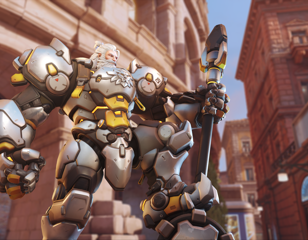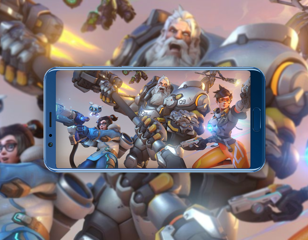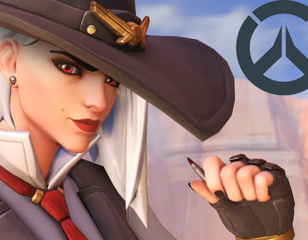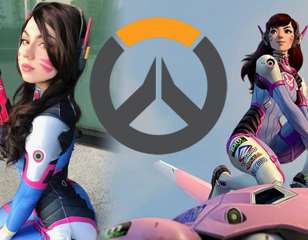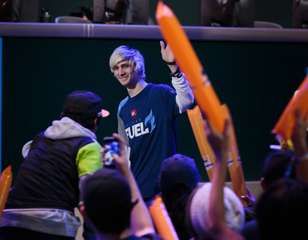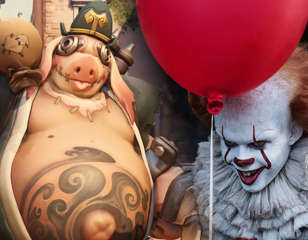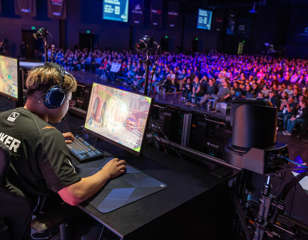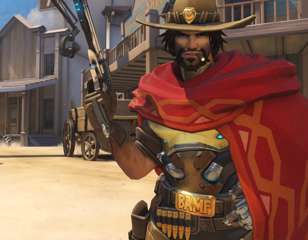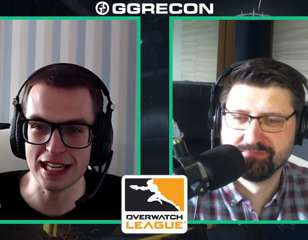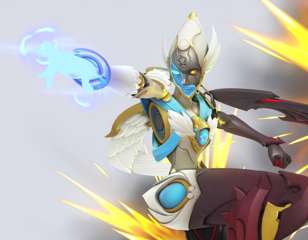The Greatest Six - The Best Main Support Of Overwatch 1
There aren't too many obvious choices for the best main support. Would you ever believe it's this guy?

Sascha Heinisch
17th Dec 2021 18:00
Blizzard Entertainment
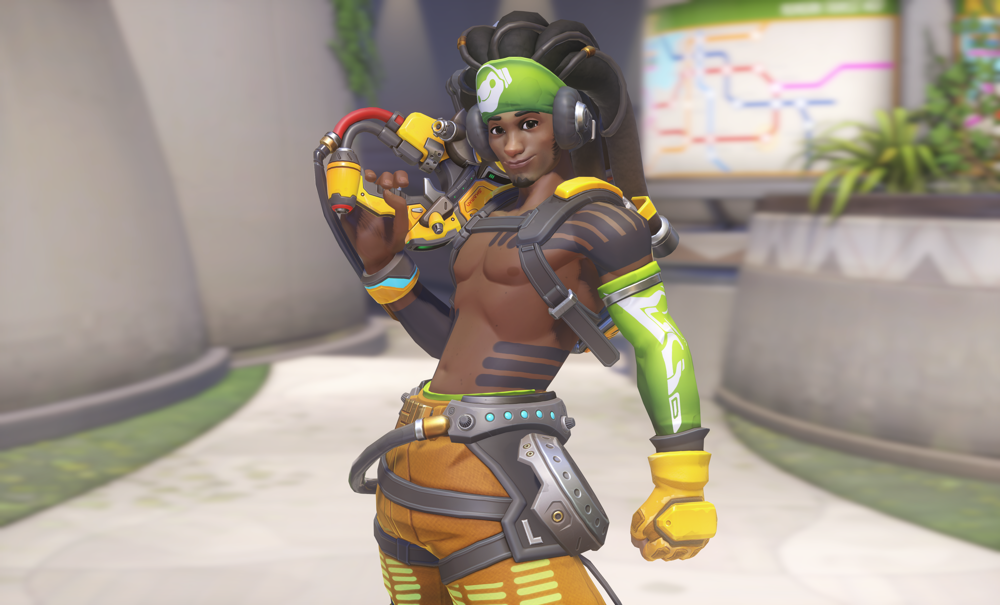
Whenever the discussion is raised on the best or greatest of all time, there are two common grievances shared in comment sections. Either a representative amount of the community feels that it is too early to say or that the roles in Overwatch are so sufficiently different, that figuring out a fair method between each player’s contributions is just always going to be unsatisfying to them. Taking those into account, I sliced differently here.
With the end of top tier competition in Overwatch 1 as we are likely to consider the impending pre-OW2 patch different enough from what we have been playing before, with the downsizing of teams from six to five players alone being likely a much more significant change than either role lock or hero pools, we can set a hard stop time in the present and side-step the 'of all time' qualification.
Criteria
When asking who the best player of Overwatch 1 in a particular role was, I’m looking at the following criteria:
- Trophies
- Personal awards
- Longevity
- Flexibility
- Playtime
- Performance evaluation
Trophies are a decent method of telling how good a player was, but from history, we know that they aren’t always telling the full story. While a player like WhoRU has two APEX trophies and an Overwatch League title under his belt, he only really played a vital role in one of those achievements. Other qualifiers are therefore required. For reasons outlined in this article, I will count two APEX titles the same as one OWL title.
Personal awards are another solid indicator of performance. However, as snotty as that may come off, especially in earlier seasons in the Overwatch League, the process of awarding personal trophies was far from rigorous, only countered by the eventual recipients of for instance the MVP trophy being fairly straightforward with one candidate shining bright. Nevertheless, aggregated opinions make for a strong predictor of actual performance and should weigh heavily.
Longevity I expect to be a divisive point. My reason to weigh it heavily is based on the large number of big changes Overwatch 1 has experienced in its time. A player who was able to stay on top through different competitive formats, heavy balance changes and hero reworks, fundamentally different meta archetypes, role lock, hero pools, and more is simply a different beast to a player who even has achieved the most for a year or two. Winning the biggest trophy is a gamble you won, being among the best for five years or more is a statement.
Flexibility and playtime go hand in hand. A player who was able to mainly coast on a single hero (like Tracer) being prevalent in the meta shouldn’t be punished for her strength, but when they aren’t fielded when other heroes are the flavour of the month, it needs to be considered. A player who has to play the entire hero pool for his team has a fundamental disadvantage in every given game against a specialist who can sit on the bench and hone their one-trick-pick.
Performance evaluation is both the eye test of experts and pundits shared with me and a rough estimation of statistical performance over the length of Overwatch 1 esports. While the personal award criterion accounts for some eye test qualifications, it’s an imperfect view of performance. After all, a player like Profit who many call the GOAT has so far only got two personal achievements and has only been nominated for season MVP once.
In terms of their weight, I did not consider performances of year one of Overwatch to be considerably less important than of year five. While it is true that the level of play increases a lot during a game’s life cycle and that competition generally gets more serious as it professionalises, I believe that players need to be evaluated in the context of the time their play takes place in. Would you not consider chess legend Garry Kasparov one of the greatest players of all time after having been the world no.1 for almost 19 consecutive years, even though he’d likely lose against a lot of top chess professionals who learned the game after the AI revolution of the sport? The answer feels obvious.
Best Main Support Of Overwatch 1
Curiously, I found the main support role to be the most wide-open in who could reasonably argue to be the best in their role. While the heroes played haven’t changed more than in other roles, the social and communicational role has shifted so significantly that very few players from the early days are still around to tell the tale.
This makes for an awkward ranking process in which no answer feels satisfying. Either the competitors haven’t been around for more than two or three years or their performance especially in recent years have left much to be desired. Ultimately, it is an exercise in professing the values one holds as to be most important. Compare the careers of someone like Anamo to LeeJaeGon. Anamo has been around at the high and highest level of competition for much longer, LeeJaeGon has been more impressive and has had more individual success, especially in recent years.
It is for that reason that everyone I’ve discussed my pick for best main support of Overwatch 1 will visibly have an internal monologue with themselves whether or not my choice makes any sense whatsoever. I’ll let you be the judge of that.
The Best Main Support Of Overwatch 1 - Jin-mo "Tobi" Yang
Trophies:
- 2x APEX Win
Listing the trophies and awards (or the lack thereof) here does my argument no favours. After all, there are some players who have gained RoleStar and League titles on the role. However, as I’ve outlined in an earlier piece, I consider the back to back victory of Lunatic-Hai equal to an OWL title. Still, no RoleStar awards and no other titles is a tough pill to swallow.
Tobi’s greatest achievement has been that he has been able to stay at the very least average in his role for all five years of Overwatch’s competitive history. While other roles have a couple of players with similarly long careers, there are very few that have stood the test of time like Tobi has. This strikes me as an extraordinary achievement. His class of 2016 with names like Wakawaka, Gambler, Runner, Harryhook, and winz have long stopped being relevant as players in Overwatch, Tobi was still in a couple of decent teams. In this context, appearing in a Grand Final on April 8th, 2017 and again on October 10th, 2020 is a length of a career at the top that few have achieved, much less on the main support role.
Tobi vs Other Competitors
Other competitors in the last round were: Moth, LeeJaeGon, and FunnyAstro.
All of these three have a serious claim to the title and are much more directly comparable than they are to Tobi’s career. Leading among them would probably be Moth with two League titles and a RoleStar award, and if he was your choice, you wouldn’t get much of an argument from me.
Personally, only having been truly relevant to the Overwatch esports landscape for two years appeared to be too short of a duration to be considered the best of all time, though one could argue that he accomplished more in that short period than Tobi ever did. However, that is probably what happens when you are part of the best team of all time and the only franchise to go back to back in the Overwatch League.
FunnyAstro could’ve theoretically had a serious claim to this title simply because of his ability to be a top performer, but unfortunately, his late eligibility and league ban kept him from a long stay at the highest level. Because of this, significant portions of his career as perhaps the best Lucio in the game have taken place in Contenders teams and not even in the most competitive one.
One could reasonably argue that LeeJaeGon has been the best main support in Overwatch in the last three years, winning titles with both RunAway and the Shanghai Dragons. However, his relatively late entrance into the top-level makes it a tough sell for me.
All in all, there appears to be no right answer in the case of main support and a nomination for one competitor is inevitably a display of Wittgenstein's Ruler: It says more about the one making the measurement than about the measured. Because of the otherwise largely unobservable pattern of a five-year-long career at the highest level, I personally believe this to be the strongest display of achievement, making Tobi my best main support of Overwatch 1.

About The Author
Sascha Heinisch
Sascha "Yiska" Heinisch is a Senior Esports Journalist at GGRecon. He's been creating content in esports for over 10 years, starting with Warcraft 3.
